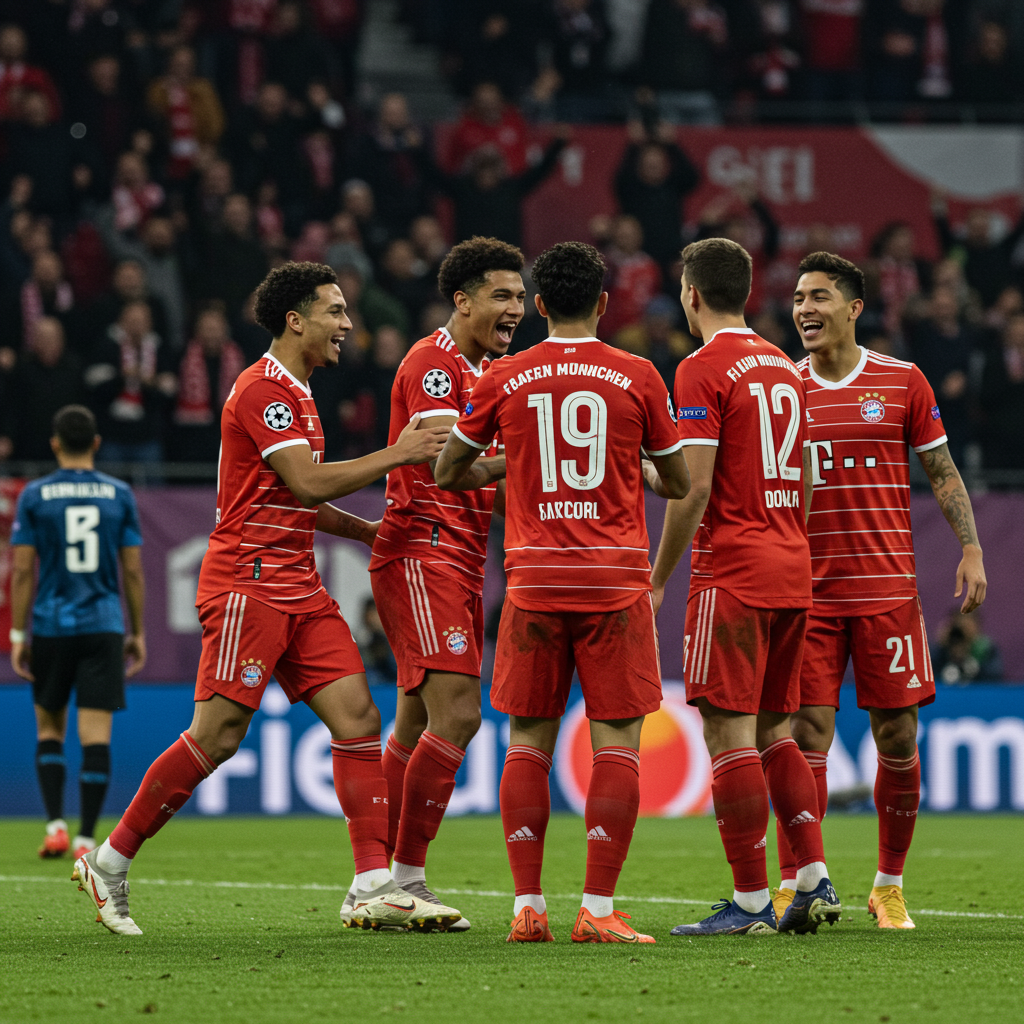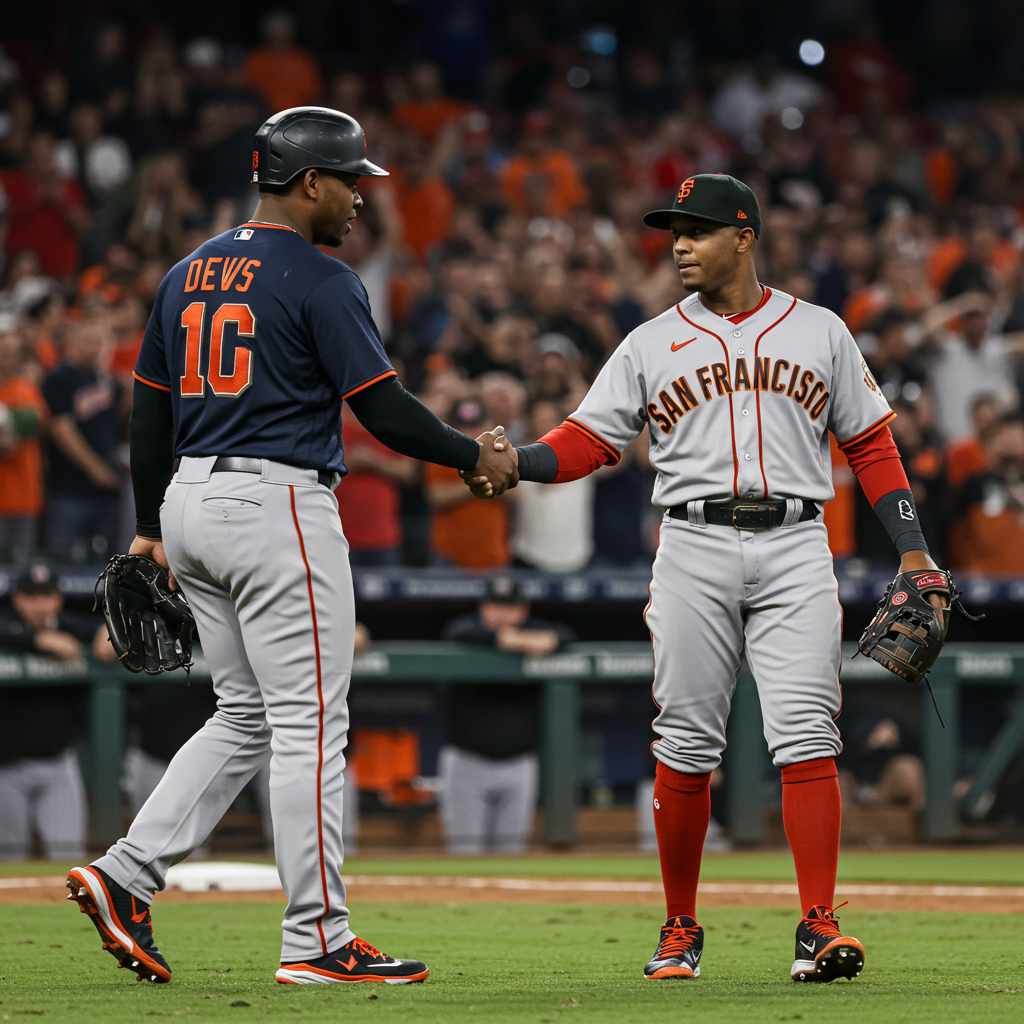A scoreline of 10-0 in professional football is always attention-grabbing, but when it occurs on a global stage like the FIFA Club World Cup, pitting one of Europe’s giants against a team of amateurs, it highlights a stark and perhaps uncomfortable reality of the sport’s vast disparities. That was the case when German powerhouse Bayern Munich faced New Zealand’s Auckland City, a match described by many as one of the biggest mismatches in recent memory.
A Record-Breaking Rout
From the opening whistle at TQL Stadium in Cincinnati, the gulf in class was evident. Bayern Munich, 34-time German champions and six-time UEFA Champions League winners, dominated possession and peppered the Auckland goal. Kingsley Coman opened the scoring just five minutes in, setting the tone for the rout.
Bayern reached double figures for the first time since 2021, securing a historic 10-0 victory that set a new Club World Cup record for the largest winning margin. Goals flowed from multiple players, including Sacha Boey, Michael Olise, and Coman. Thomas Muller added to the tally, eventually scoring his milestone 250th goal for the club late in the game. Notably, German international Jamal Musiala came off the bench in the 61st minute and still had time to net a second-half hat-trick, showcasing the depth of talent even in Bayern’s substitutions.
Bayern’s statistical dominance was absolute: 31 attempts at goal with 17 on target, maintaining 71% of possession. In contrast, Auckland City managed just one shot towards Manuel Neuer’s goal, which was easily saved.
More Than Just a Scoreline: A Chasm On and Off the Pitch
The 10-0 score was merely a reflection of the fundamental differences between the two clubs, which extend far beyond the pitch. Bayern Munich is a fully professional, billion-dollar enterprise, while Auckland City is an amateur club whose players juggle football with regular jobs.
Financial Gulf: Bayern boasts annual revenues exceeding 951 million euros (£810m), dwarfing Auckland City’s reported 1.1 million New Zealand dollars (around £488,000). This disparity is starkly illustrated by player salaries: Bayern’s Harry Kane reportedly earns £400,000 per week, while Auckland City’s best-paid amateur players operate under a salary cap of just 150 New Zealand dollars (around £66) per week. It would take Auckland’s top player approximately 117 years to match Kane’s weekly wage. Squad values underline this further, with Bayern’s team valued at over 903 million euros (£769m) compared to Auckland’s modest 4.58 million euros (around £3.9m).
Amateur vs. Professional Life: Auckland City’s squad represents a diverse cross-section of New Zealand life. Players hold everyday jobs ranging from primary school teachers, insurance brokers, barbers, sales representatives (like captain Mario Ilich, who works for Coca-Cola), car retailers, and students, to individuals working as a supervisor at a veterinary supply warehouse, a construction site engineer, a program coordinator at a non-profit, real estate agents, and personal fitness coaches. For many, participating in the Club World Cup required taking unpaid leave from work, with the team’s collective flight costs reportedly double their annual revenue. One player, left-back Nathan Lobo, even had to sit a university exam from his hotel room during the tournament. This stands in stark contrast to Bayern’s globally recognized, full-time professional athletes.
Global Standing: Opta’s Power Rankings place Bayern sixth globally. Auckland City is ranked significantly lower, down in 5,074th place, sitting over 2,500 places below a lower-tier English club like York City. The difference extends to infrastructure, with Auckland’s modest home ground, Kiwitea Street, a world away from the state-of-the-art stadiums occupied by Europe’s elite.
Prize Money Discrepancy: Even the financial rewards for participation highlight the disparity. Auckland receives approximately £2.6m for taking part, a substantial amount for the club but a fraction of the potential earnings for top European clubs (£9.9m to £29.6m), and significantly less than the £60m top teams can reportedly earn by winning the tournament.
How Did Auckland City Reach This Stage?
Despite their amateur status, Auckland City is a dominant force within Oceania (OFC). They qualified for the Club World Cup as the best OFC Champions League winners over the ranking period between 2021 and 2024. Having won their continental competition a record 13 times since 2006, including the last four editions, they are seasoned veterans of the Club World Cup stage, making their 12th appearance – more than any other side.
Their presence is also a result of the structure of New Zealand football; the country’s only fully professional clubs play in Australia’s A-League and are therefore ineligible for the OFC Champions League. Thus, Auckland City, as the top amateur/semi-pro side in the region, serves as Oceania’s representative, fulfilling FIFA’s goal of continental inclusion in the expanded tournament.
However, while dominant regionally, facing professional opposition has historically proved challenging. In the 2024 Intercontinental Cup (effectively replacing the CWC format for one year), they lost 6-2 to Al Ain, and in the 2023 Club World Cup, they were defeated 3-0 by Al-Ittihad. Competing in a group with professional giants like Bayern Munich, Boca Juniors, and Benfica in the new 32-team format presents an unprecedented challenge.
Fueling the Debate Over the New Format
The extreme mismatch has inevitably ignited debate about the expanded FIFA Club World Cup. FIFA President Gianni Infantino has branded the tournament as featuring “THE BEST v THE BEST” and the “32 best club teams in the world.” The Bayern-Auckland match visibly contradicted this narrative, leading to uncomfortable viewing for many fans and commentators.
Reactions from fans covered by BBC Sport included questioning the entertainment value, suggesting it resembled a pre-season friendly more than a competitive fixture, and even questioning the sporting fairness of Bayern fielding such a strong side. Some fans displayed banners protesting FIFA governance.
Despite the challenging outcome, Auckland City’s perspective remains one of pride and achieving a dream. Interim coach Ivan Vicelich acknowledged the 10-0 result as the “reality of football against one of the world’s top teams” but highlighted the experience as a “dream for players coming from an amateur level.” Assistant coach Adrià Casals emphasized that Auckland City represents “like 95% of the world’s footballers,” aiming to make amateur football proud on the global stage. Bayern boss Vincent Kompany maintained his team took the game seriously but acknowledged the step up in difficulty for future opponents like Boca Juniors.
The Bayern-Auckland encounter was a vivid, if lopsided, demonstration of the enormous disparities that exist within global football, showcasing the amateur dream colliding head-on with the professional elite on the sport’s grandest club stage.



